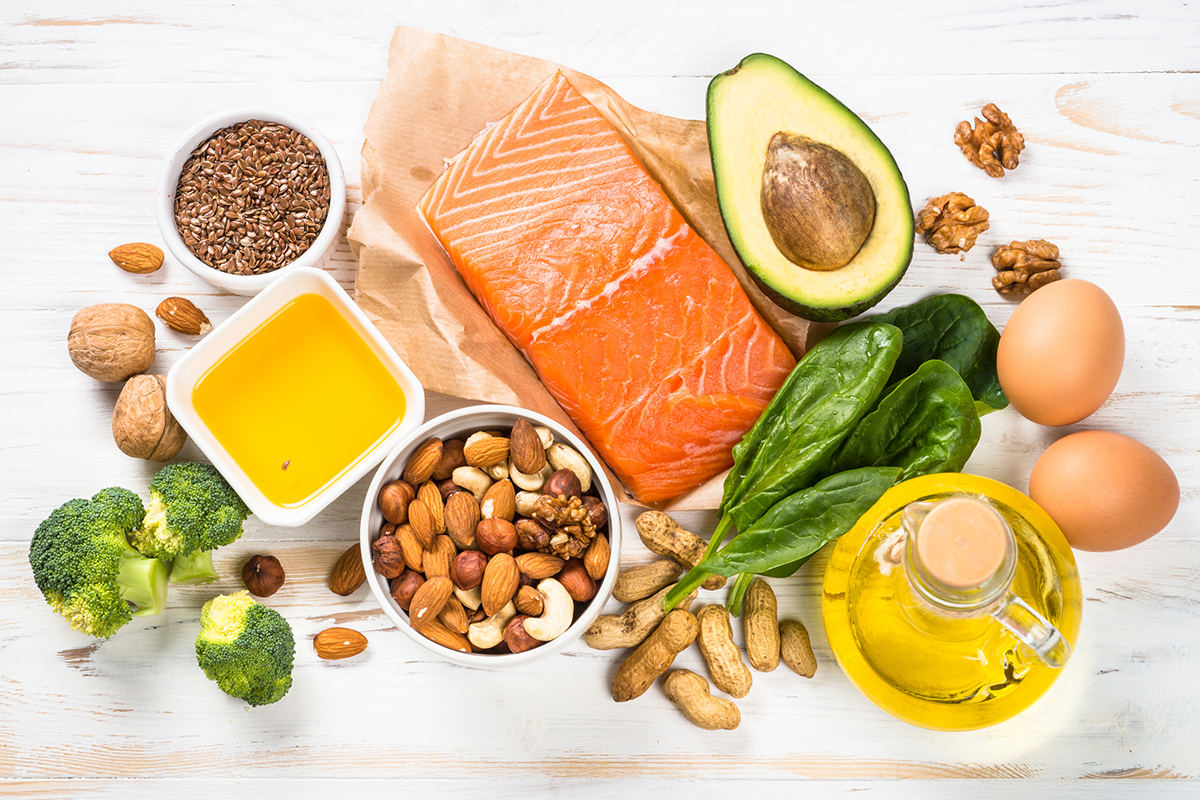I’m a veteran of the Diet Wars.
Back in the 80s, when the ultra-low-carb Atkins Diet was all the rage, the refrain was:
“Sure you’ll lose scads of weight . . . but it’ll eventually kill you!”
“Sure your blood pressure will normalize . . . but it’ll eventually kill you!”
“Sure your triglycerides will come down and your HDL cholesterol will soar. . . but it’ll eventually kill you!”
“Sure you’ll be able to ditch your diabetes meds . . . but it’ll eventually kill you!”
“Sure your inflammation will be checked . . . but it’ll eventually kill you!”
“Sure your digestive woes will abate . . . but it’ll eventually kill you!”
“Sure your moods will stabilize and you’ll sleep better than ever . . . but it’ll eventually kill you!”
Fast forward to the present and the keto diet has been embraced by millions of Americans. Newsweek reports:
“As many as 7 percent of Americans followed this eating plan in 2022, according to data from the International Food Information Council, while the global ketogenic diet food market skyrocketed to $8.8 billion that same year.”
That doesn’t sit well with the guardians of nutritional rectitude who continue to embrace a hackneyed “plant-based”, fiber-rich, low-fat diet replete with starchy grains and virtually devoid of animal protein. The added imprimatur of “saving the planet” greenwashes their claims.
Accordingly, a concerted campaign has been launched to impugn the keto diet; as usual, the lived experiences of countless individuals who have lost scores of pounds and reversed metabolic disorders are discounted.
The gatekeepers seem to be saying: “Suckers, don’t succumb to the allure of this dangerous diet!” Just like they claimed in 1972 when “Dr. Atkins’ Diet Revolution” debuted. (If you want to see a biased hatchet job, just read the Wikipedia bio on Dr. Atkins).
Harvard Health writes “Should you try the keto diet? It’s advertised as a weight-loss wonder, but this eating plan is actually a medical diet that comes with serious risks.”
The latest attempt to poison the well on keto comes from a study that generated headlines like these:
- “Keto diet may accelerate organ ageing [sic]: In mice, a ketogenic diet increases the build-up of zombie-like cells in the heart, kidney, lungs and brain, which can accelerate organ ageing [sic] and lead to health problems” New Scientist
- “A long-term ketogenic diet accumulates aged cells in normal tissues, new study shows” Medical Xpress
- “Keto Diet May Accelerate Organ Aging” Healthnews
Not content to uncritically accept the press accounts, I looked up the study on which they’re based. With the daunting title, “Ketogenic diet induces p53-dependent cellular senescence in multiple organs”, researchers raise the alarm over the long-term effects of keto:
“Our study . . . reveals a mechanism that may, at least in part, account for the detrimental effects of a long-term KD. Our experiments have shown that a KD can induce p53 signaling through AMPK activation combined with inactivation of MDM2 by caspase-2 cleavage, ultimately leading to an increase in p21 and cellular senescence in multiple organs.”
Ughhh—sounds bad! What the click-bait headlines did not reveal was, that in the very same study, the authors acknowledge that distinct metabolic benefits were seen with a keto diet of short duration; they merely raise questions of harm with long-term keto dieting.
I then perused the study further. Buried amid the sophisticated jargon, impressive graphs, flow cytometry diagrams, and color reproductions of damaged cells is a succinct description of how the investigators replicated the effects of keto diet in the rats:
“The primary fat source in this KD was hydrogenated vegetable shortening (Crisco).”
Mic drop!
Even “Pizza Rat” had a better diet!
While Crisco has been reformulated to minimize its content of deadly trans-fat, it’s been argued that:
“ . . . while the formula has been changed to remove the trans fatty acids, the fully hydrogenated oil used to replace them may not be good for health. Crisco and similar low-trans fat products are formed by the interesterification of a mixture of fully hydrogenated oils and partially hydrogenated oils. The composition of the resultant triglycerides is random, and may contain combinations of fatty acids not commonly found in nature. A recent study showed that interesterified fat increased volunteers’ blood sugar by 20%, while simultaneously lowering the body’s HDL cholesterol.”
Why the investigators of this elaborate and no doubt expensive study should have undermined their own verdict on the merits of keto with such a drastic methodological blunder, I have no idea!
The press headlines should have been: “Crisco even makes rats sick!”
I would’ve been happy to contribute all the cans of leftover bacon grease I’ve thrown out over the years—at least it’s natural, and would’ve been a reasonable proxy for a worst-case scenario of the fat that people consume on keto. But the investigators never asked me!
Another study was touted with the headline “High-Fat Diet May Make You Stupid and Lazy”:
“Murray and colleagues studied rats fed a low-fat diet (7.5 percent of calories as fat) and rats fed a high-fat diet (55 percent of calories as fat). Muscles of rats eating the high-fat diet for four days were less able to use oxygen to make the energy needed to exercise, causing their hearts to worker harder — and increase in size. After nine days on a high-fat diet, the rats took longer to complete a maze and made more mistakes in the process than their low-fat-diet counterparts.”
I have questions. Disregarding for a moment the sketchiness of extrapolating rodent diet responses to humans, as anyone knows who is trying to implement a low-carb diet, 55% fat does not constitute “low-carb”—much less keto. I hope the fat wasn’t Crisco, but the rats’ diet details were hidden behind a paywall. What you eat with the fat in a keto diet counts, too. Keto only works when you drastically curtail carbs, otherwise the plethora of fat just supercharges the adverse metabolic effects of the starch and sugar you include.
Contrary to the headline, recent research is substantiating the benefits of keto for dementia and even for challenging psychiatric conditions like schizophrenia and bipolar disorder (see my reviews of “Brain Energy” by Dr. Chris Palmer and “Change Your Diet Change Your Mood” by Dr. Georgia Ede).
My professional organization, the American Nutrition Association, offers a great introductory course on how to safely undertake ketogenic diets.
Full disclosure: I personally don’t adhere to a keto diet, nor do I recommend it for the majority of my patients. I’m happy with my weight, and my blood pressure and blood sugar are fine. I don’t have coronary artery plaque. I seem to do well with a low-carb diet, rich in animal protein and healthy fats, but don’t eschew carbs entirely. Perhaps high levels of exercise, adequate sleep, hormonal balance and favorable genetics buffer me from the potentially deleterious effects of modest intake of carbs.
Nevertheless, for many, keto, while demanding, is a plausible therapeutic intervention. One that should not be discouraged via misleading clickbait headlines, or a social media policy that creates algorithms to systematically throttle down keto posts.
For example, keto has fallen victim to YouTube’s recently announced medical misinformation policy:
“It will remove content that contradicts guidance from health authorities on the prevention and transmission of certain conditions, including vaccines. It will also take down content that contradicts guidance on treatments, including videos that tout unproven remedies in place of seeking care . . . The platform said its new policies ‘will apply to specific health conditions, treatments, and substances where content contradicts local health authorities or the World Health Organization (WHO)’.”
With the latest WHO guidelines recommending:
“ . . . adults should limit total fat intake to 30% of total energy intake or less. Fat consumed by everyone 2 years of age and older should be primarily unsaturated fatty acids, with no more than 10% of total energy intake coming from saturated fatty acids . . .”
That doesn’t leave much room for social media posts advocating keto. They haven’t disappeared entirely, but they’ve been deprioritized in the search results and recommended videos, prompting an outcry by keto influencers.
That’s why, as President of the Alliance for Natural Health, I’m advocating for our FreeSpeech4Health campaign. It seeks to loosen the grip of the monoculture of health information—as dictated by governmental organizations in the capture of BigPharma, BigFood and Orthodox Medicine.
ANH will be at The Seventy-Seventh World Health Assembly being held in Geneva, Switzerland, on May 27 – June 1, 2024 to protest a proposed treaty that will lockstep countries into compliance with WHO’s misinformation diktats. Following, we’ll be taking the argument to Google headquarters in Mountainview, California to urge free access to discussions of health issues now stigmatized as “misinformation”. As was so amply demonstrated during Covid, today’s controversial viewpoints might be ultimately vindicated as tomorrow’s verities. That’s how science has progressed since the days of heretics like Galileo, Copernicus and Semmelweis.
To learn more about the FreeSpeech4Health campaign, listen to my far-ranging discussion with ANH Executive Director Rob Verkerk, PhD.








